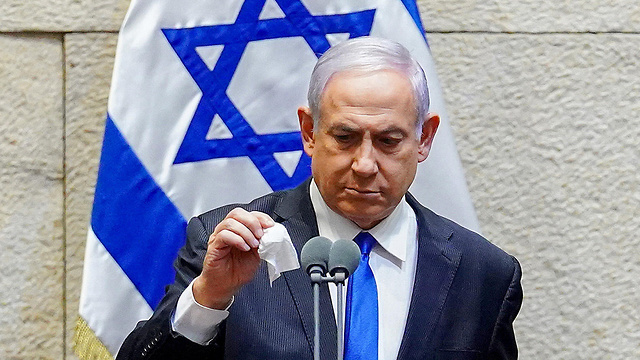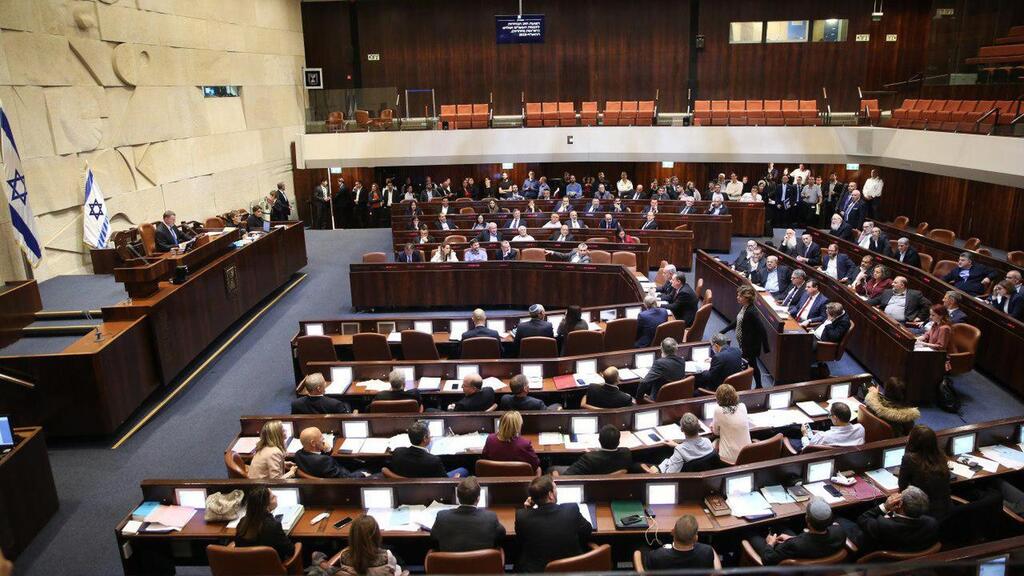Getting your Trinity Audio player ready...
Sources in the political world believe that Prime Minister Benjamin Netanyahu is examining the possibility of becoming Israel's next president when Reuven Rivlin ends his term in office in July, as a possible way to gain immunity from his corruption charges.
A draft bill by the Yesh Atid-Telem faction banning anyone charged with a crime from running for Israel's president was defeated in the Knesset several weeks ago.
This incident has only strengthened speculation that Netanyahu might be heading down this route.
Clause 14 of Basic Law: The President of the State reads: "The President of the State shall not be criminally prosecuted; the period during which, by virtue of this section, the President of the State cannot be prosecuted for an offense shall not be counted in calculating the period of prescription of that offense."
This means the president has full immunity from criminal prosecution throughout his seven-year tenure (and that period shall not be included in any statue of limitations the alleged offence).
Added to this is Clause 15: "If the President of the State is required to give evidence, his evidence shall be taken at such place and time as shall be determined with his sanction," limiting the possibility of the officeholder to even give testimony during a court case.
When the criminal investigation regarding former president Moshe Katsav's charges of sexual assault and rape began, a petition was filed to the High Court of Justice stating that his immunity prevented him from even being under police investigation.
The justices concluded that the president is immune from criminal prosecution and trial, but that he could still be investigated while he is in office.
If Netanyahu does wish to move from the prime minister's residence in Jerusalem to the presidential residence down the road - and enjoy a seven-year delay in his criminal trial - he will have to overcome with two legal hurdles.
Firstly, although Yesh Atid-Telem's proposal did not pass, the High Court of Justice can still decide that it is unreasonable for the Knesset to elect a person facing criminal charges to the role of the president, whom the court says "represents the moral values of the State of Israel."
Contrary to past debates on whether a Knesset member under criminal prosecution can form a government, the High Court might be more responsive to petitions requesting such an individual be disqualified from running for president, given the lofty status of the office.
Second, even if Netanyahu does get the job, there are still questions regarding the interpretation of Clause 14. Is the immunity from trial relevant to a criminal procedure that is already ongoing?
It is possible that given the fact that Knesset knowingly elected a man already facing criminal charges could help the High Court in deciding whether immunity does not include ongoing trials.
The honor of the presidency could prove less important that equality before the law, with any previous criminal trial still needing to continue, given that the Knesset members were aware of it during his election.
The legal precedents and the various interpretations of the law should also demonstrate to Netanyahu that he must very carefully examine the possibility of becoming president and whether his criminal trials are not an impossible hurdle in that effort.
Dr. Matan Gutman is an expert on constitutional and administrative law and Ynet TV's legal commentator.



